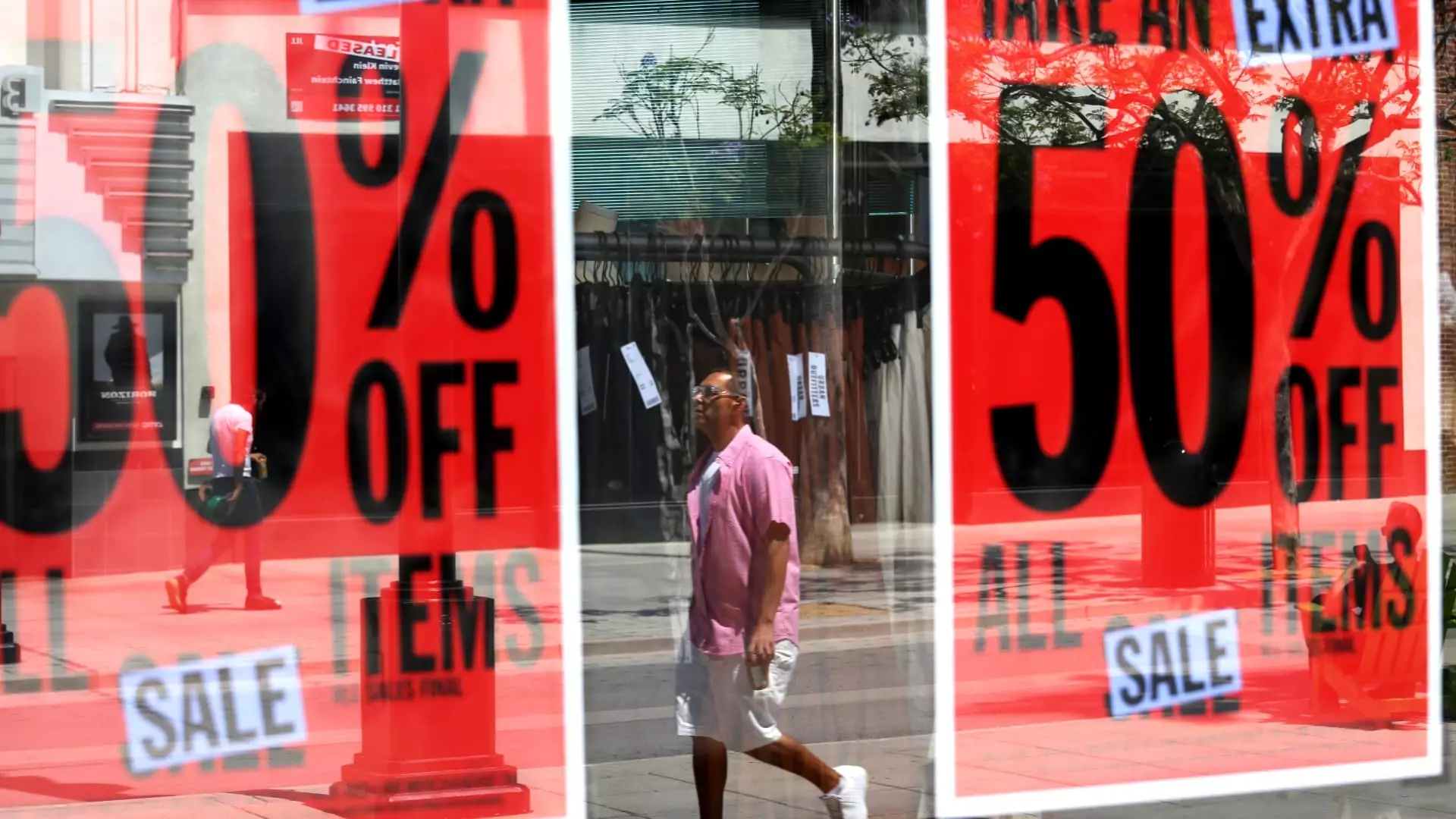The landscape of retail is undergoing an alarming transformation amidst ongoing trade wars. As the rhetoric from political frontline becomes increasingly strident, retailers find themselves in an intense game of catch-up, scrambling to innovate their strategies in response to President Donald Trump’s aggressive tariffs. Strikingly, some brands are now taking an unusual approach to consumer engagement, using the fear of impending price hikes to create urgency in purchasing. As tariffs threaten to disrupt the retail market, companies such as Beis, Bare Necessities, and others are employing promotions that play on consumer anxiety, urging shoppers to buy “before it’s too late.”
Such strategies present a fascinating twist in marketing, where retailers bank on the fear of higher prices to compel purchases, essentially weaponizing anxiety as a sales tactic. The concept may be brilliant at first glance—who wouldn’t want to save money in anticipation of price hikes? However, the underlying implications are profoundly concerning; this represents a reactive rather than proactive response, painting a somber picture of how the retail sector can weather economic storms. It’s reminiscent of a captain steering a ship into turbulent waters but justifying it by telling passengers they’ll enjoy the view—while knowing the seas could just as easily swallow them whole.
The Existential Quandary for Retail Brands
Beyond the superficial marketing gimmicks lies a much graver concern: the existential threat that tariffs pose to countless retailers. For businesses that find themselves dependent on consumer spending—especially those selling less-than-essential items—the looming possibility of a downturn is troubling. Analysts suggest that consumer spending could plummet, making it challenging for both small and large brands to navigate uncharted waters. With economic foundations that could erode faster than expected, the pressure to secure sales while prices are still relatively stable leaves many companies in a precarious predicament.
Moreover, the unpredictability of tariffs generates an environment where long-term strategic planning becomes nearly impossible. Brands are not just holding sales; they are engaging in a frantic effort to stay afloat, cobbling together standard discounts and quirky promotions in desperate hopes of boosting their cash flow. In doing so, the integrity of their marketing messages gets compromised. Instead of fostering a loyal customer base based on quality and service, companies resort to fear-based selling strategies—a trend that, while effective in the short term, could alienate consumers who may favor ethics over expediency.
Survival of the Fittest: The Small Business Struggle
For smaller retailers, the situation is particularly dire. In stark contrast to industry giants such as Walmart or Target—who possess robust global supply chains—smaller brands often grapple with severely limited options. This reality not only restricts their ability to pivot in response to increased tariffs but can also undermine their operational viability altogether. Experts have consistently warned that small businesses will disproportionately suffer from fluctuations in tariffs, exposing their vulnerability without the safety net larger corporations exploit.
A recent trend has emerged where smaller companies are relying heavily on pre-tariff promotions in hopes of reinforcing their cash flow before any significant dip in demand occurs. This practice raises an uncomfortable question: are we witnessing a survival-of-the-fittest doctrine in real-time? As larger players dominate the industry landscape, do we fear the slow erosion of innovation and diversity in our marketplace, as smaller retailers buckle under the pressure of fiscal unpredictability? Economically, this isn’t just about profits for retailers; it’s about survival for many who are fighting for a place at the table.
The Role of Humor in Deflecting Dread
What’s intriguing is the pivot towards humor that some brands are adopting to soften the inevitable shock of angry, inflation-driven consumer reactions. Take Beis, for instance, with its tongue-in-cheek messaging surrounding price increases—highlighting both the awkwardness of the situation and the uncertainty in a landscape riddled with complexities. In a world where careful messaging can mitigate backlash, brands are hesitant to take firm stances on politically charged matters, instead opting for lighthearted banter to guide customers towards action.
This approach raises further questions about the authenticity and sincerity of marketing efforts. When humor is employed as a shield to mask significant economic anxieties, does it undermine the trust consumers have in the brands they support? Reaching for laughs while claiming earnest confusion may feel like a double-edged sword, exposing brands to potential scrutiny. As the political climate continues to simmer, brands face the monumental task of balancing marketing strategy against the risk of alienating certain consumer segments, leaving them stranded in a political no-man’s-land.
The Retail Landscape of Tomorrow
Ultimately, the ongoing trade war—and the ensuing tariffs—will reshape not just the retail sector but also the broader economic landscape in ways we can only begin to fathom. Through fear-based marketing, existential struggles for small businesses, and the exploratory use of humor, retailers are navigating tumultuous waters that could alter consumer behavior for years to come. With such drastic changes unfolding, one can’t help but wonder if this precarious situation might eventually lead to innovative solutions or, tragically, an industry significantly diminished in both quality and diversity. The real challenge will be whether retail brands can recover once the storm subsides and rebuild consumer trust amid lingering doubts and economic realities.

